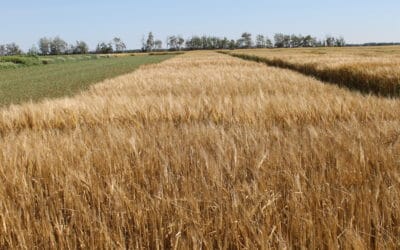The Food and Agriculture Organization of the United Nations (FAO)’s Food Price Index showed a significant decline in the benchmark for global food commodity prices in July.
The Index averaged 140.9 points last month, showing an 8.6 per cent decrease from June’s average. July is the fourth consecutive month to exhibit a decrease since all-time highs were hit in early 2022. While a decrease over the past few months is present, July 2022’s record remains 13.2 per cent higher than the recorded average from July 2021.
The @FAO Food Price Index averaged 140.9 points in July, 🔻8.6% from June, marking the 4th consecutive monthly decline.
Major cereal & vegetable oil prices recorded double-digit percentage decline.
The Index remained 13.1 % higher than in July 2021.
👉 https://t.co/YW5pp7MWEg pic.twitter.com/m3IZaJQntg
— FAO Newsroom (@FAOnews) August 5, 2022
“The decline in food commodity prices from very high levels is welcome, especially when seen from a food access viewpoint; however, many uncertainties remain, including high fertilizer prices that can impact future production prospects and farmers’ livelihoods, a bleak global economic outlook, and currency movements, all of which pose serious strains for global food security,” said Maximo Torero, chief economist at FAO in a release.
FAO’s Vegetable Oil Price Index fell 19.2 per cent in July, hitting a 10-month low. Global quotations for all oil types decreased. Palm oil prices fell because of potential export availabilities out of Indonesia, rapeseed oil declined due to prospects of new crop supplies and soy oil was down from a protracted sluggish demand. Sunflower oil prices also saw a drop “amid subdued global import demand despite continued logistical uncertainties in the Black Sea region,” explained the release.
FAO’s Cereal Price Index decreased 11.5 per cent in July, yet stays 16.6 per cent higher than the July 2021 value. Prices for all cereals included in the index decreased, with wheat’s world prices falling by as much as 14.5 per cent. This decrease is partly due to the agreement between Ukraine and the Russian Federation that unblocks exports from crucial Black Sea ports. Wheat’s decline is also a result of the northern hemisphere’s season availability from current harvests.
Global coarse grain prices fell by 11.2 per cent last month, with maize down 10.7 per cent as another result of the Black Sea agreement, in addition to higher seasonal availabilities from Argentina and Brazil. International rice prices also saw a decline for the first time this year.
Read More:
Canadian Ag Well Set Up to Weather Inflation, Rising Interest Rates
Food Prices Projected to Rise After Invasion of Ukraine
FCC Boosts Credit Lines, Loans to Help with Rising Input Prices





